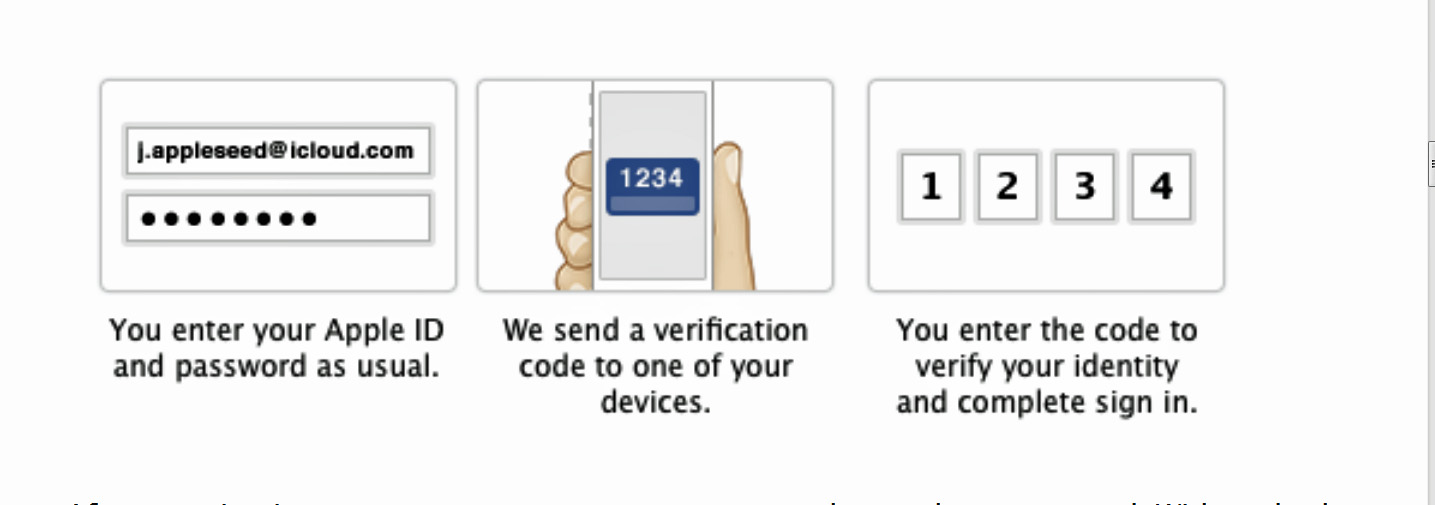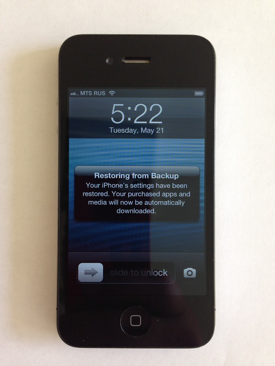If you think your pictures, contacts, and other data are protected by the two-step verification protection Apple added to its iCloud service in March, think again. According to security researchers in Moscow, the measure helps prevent fraudulent purchases made with your Apple ID but does nothing to augment the security of files you store.
To be clear, iCloud data is still secure so long as the password locking it down is strong and remains secret. But in the event that your account credentials are compromised—which is precisely the eventuality Apple's two-factor verification is intended to protect against—there's nothing stopping an adversary from accessing data stored in your iCloud account. Researchers at ElcomSoft—a developer of sophisticated software for cracking passwords—made this assessment in a blog post published Thursday.
"In its current implementation, Apple’s two-factor authentication does not prevent anyone from restoring an iOS backup onto a new (not trusted) device," ElcomSoft CEO Vladimir Katalov wrote. "In addition, and this is much more of an issue, Apple’s implementation does not apply to iCloud backups, allowing anyone and everyone knowing the user’s Apple ID and password to download and access information stored in the iCloud. This is easy to verify; simply log in to your iCloud account, and you’ll have full information to everything stored there without being requested any additional logon information."
He continued:
"In ElcomSoft's opinion, this is just not the right way to do this from a security point of view. iCloud has been exploited in the past (see Norwegian Teenagers Hacking iCloud Accounts) and will be exploited in the future."
To be fair to Apple, there's nothing in the company's FAQ for two-factor verification that says or implies user data is protected by the new measure. Still, it was rolled out a few months after hackers exploiting security loopholes in online services from Amazon and Apple wiped out the entire digital life of Wired editor Mat Honan. Given the timing of Apple's two-factor introduction, it wouldn't be surprising if some customers believed it prevented the same kind of thing from happening to them in the event a hacker was able to exploit similar vulnerabilities.



 Loading comments...
Loading comments...
